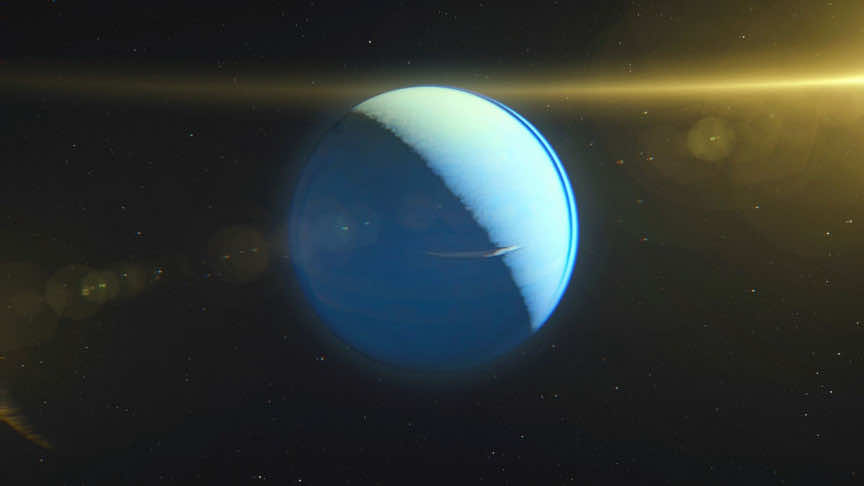Scientists around the globe have successfully researched some planets of our Solar System mainly Earth and Mars but there is still relatively little information about faraway ice-cold planets like Neptune and Uranus.
For the first time in history, scientists have managed to make a mock setup with both planets’ estimated pressure and temperature. Adding to the information we have about their deepwater layers, as published in the journal Nature Astronomy. This also helps one understand the ocean composition in the far-off solar system.
Scientists guess that Neptune and Uranus are composed of distinct layers for atmosphere, followed by ice or liquid and then probably a rocky mantle and metallic core. The recent-most study concluded that scientists should study the interactions of water and deep rock.
“Through this research, we will increase our knowledge of the deepest interior of the ice planets and figure out what water-rock collisions may occur,” quoted Taehyun Kim of Yonsei from the University of South Korea, the head researcher of this experiment published in a Phys.org report. “Unlike terrestrial planets, ice planets happen to have some very deep water layers.”

“We suggested the likelihood of an atomic-scale combining of the two components making these two planets –water and rock,” he added. To form the immediate-death conditions of the deepwater layers on these exo-planets in the lab, the researchers at the beginning dipped usual rock-forming minerals like ferropericlase and olivine in water. Then they added pressure to the sample in a diamond anvil to very high pressures. Once this took place, the group monitored the interaction of water and minerals and took X-ray measurements as a laser took the sample to unconscionably high temperatures.
As a result of this chemical experiment high quantities of magnesium were found in the compressed water concluding that ocean bodies on Neptune and Uranus possess different chemical properties in comparison to Earth’s oceans.” Simply stating that high pressure on water resulted in the increased concentration of magnesium in the ocean bodies, as it becomes more soluble in raised pressures,” explained study co-author Sang-Heon Dan Shim of Arizona State University. He further added, “That magnesium becomes as easily soluble in the water there as saltwater is in Earth’s Oceans.”


